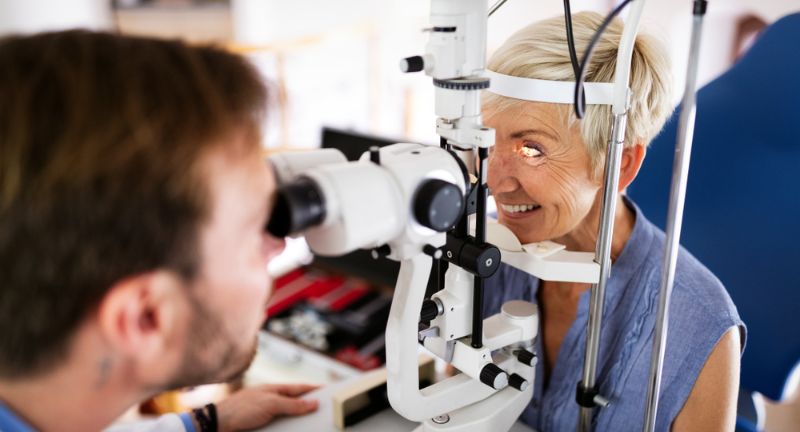Wellness
Things To STOP Doing After Age 50
Published
2 months agoon

Shutterstock
As we cross the age of 50, our bodies and lifestyles undergo significant changes, making it imperative to reassess and modify our habits for a healthier, more fulfilling life. From medical care to social interactions, the choices we make can have a profound impact on our well-being. To help navigate these changes, here are 20 things to stop doing after the age of 50, each backed by practical advice. These guidelines focus on maintaining physical health, mental sharpness, and emotional well-being, ensuring that the years after 50 are not just about aging gracefully, but living vibrantly and healthily.
Ignoring Regular Health Check-ups

Shutterstock
Regular health check-ups are vital to catch problems early, focusing on screenings for conditions like high blood pressure and diabetes, with preventive care like vaccinations and cancer screenings being a priority based on your health history.
Overlooking Dental Health

Shutterstock
Oral health is crucial for overall health, linking issues like gum disease to heart health, necessitating regular dental check-ups to prevent tooth decay and loss, and emphasizing proper oral hygiene as you age.
Neglecting Mental Health

Shutterstock
Mental health, including depression and anxiety, requires serious attention, promoting mental well-being through social engagement and activities, with options like therapy, counseling, and mindfulness practices such as meditation beneficial for maintaining mental health.
Excessive Alcohol Consumption

Shutterstock
With decreased tolerance for alcohol in older age, moderating intake can improve sleep, mood, and overall health, and it’s helpful to engage in social activities that don’t center around alcohol.
Ignoring Sleep Quality

Shutterstock
Addressing sleep issues like insomnia through good sleep hygiene, including a regular sleep schedule and avoiding caffeine and heavy meals before bedtime, is important, and persistent sleep problems should be consulted with a healthcare professional.
Overeating or Poor Diet Choices

Shutterstock
A balanced diet rich in fruits, vegetables, whole grains, and lean proteins is essential as metabolism slows, with portion control managing weight and metabolic health, and reducing processed foods and sugars to support energy levels and prevent blood sugar spikes.
Sedentary Lifestyle

Shutterstock
Staying active reduces the risk of chronic diseases, with activities like walking, swimming, or yoga being joint-friendly, and strength training combating muscle loss, aiming for at least 150 minutes of moderate aerobic activity per week.
Ignoring Bone Health

Shutterstock
Bone health, increasingly vital with age, benefits from weight-bearing exercises and a diet rich in calcium and vitamin D, while avoiding smoking and excessive alcohol, and bone density tests may be recommended for monitoring.
Skipping Sun Protection

Shutterstock
Continuous skin cancer risk necessitates using broad-spectrum sunscreen with at least SPF 30, wearing protective clothing, and regular skin checks, both self-exams and professional, to shield aging skin from UV damage.
Stressful Living

Shutterstock
Chronic stress, leading to serious health issues, can be managed through deep breathing, yoga, meditation, maintaining a social support network, and setting aside time for hobbies and relaxation.
Wearing Improper Footwear

Shutterstock
Wearing supportive, comfortable footwear is essential to prevent falls, joint pain, and foot problems, with options like orthotic inserts for additional support if needed.
Ignoring Vision and Hearing Checks

Shutterstock
Regular vision and hearing tests detect problems early, ensuring prescriptions for glasses or hearing aids are up to date, important for safety and to avoid social isolation due to sensory declines.
Holding onto Unhealthy Relationships

Shutterstock
Letting go of toxic relationships benefits emotional and physical health, focusing on supportive and positive connections, and engaging in community groups or new activities to build healthy relationships.
Resisting New Technology

Shutterstock
Embracing new technology keeps you connected with friends and family, stimulates the brain, and improves daily convenience and safety, with classes or help available to become more tech-savvy.
Neglecting Brain Health

Shutterstock
Keeping the brain active through puzzles, reading, learning new skills, social interaction, and physical exercise, alongside a diet rich in omega-3s, antioxidants, and vitamins, supports cognitive health.
Ignoring Hydration

Shutterstock
Staying hydrated is crucial as the sense of thirst diminishes with age, with regular fluid intake preventing confusion and dizziness, and consuming water-rich fruits and vegetables aiding hydration.
Wearing Outdated Prescription Glasses

Shutterstock
Regular eye exams update prescription glasses to avoid eye strain and headaches, correct vision reduces falls and accidents risk, with options like multifocal lenses for specific activities.
Avoiding New Experiences

Shutterstock
Engaging in new activities enhances well-being and mental engagement, with learning new skills and hobbies providing a sense of achievement and joy, and expanding your social circle through these activities.
Skipping Regular Exercise

Shutterstock
Engaging in regular exercise is crucial for maintaining muscle strength, flexibility, and cardiovascular health, with activities like brisk walking, cycling, or swimming recommended to keep the heart healthy, and it’s important to include both aerobic and strength-training exercises in your routine, tailoring the intensity to your fitness level and medical advice.
Ignoring the Importance of Social Connections

Shutterstock
Maintaining social connections is key for emotional and mental well-being, as isolation can lead to depression and cognitive decline, so it’s beneficial to participate in community activities, join clubs or groups that align with your interests, and make efforts to stay in touch with family and friends, using technology if necessary to bridge physical distances.
Conclusion

Shutterstock
As we cross the age of 50, it’s essential to reevaluate our habits and lifestyle choices. These 20 things to stop doing after age 50 encompass a broad range of activities and behaviors, from health and wellness practices to social and mental habits. By addressing these areas, we not only improve our quality of life but also enhance our ability to enjoy our later years with vitality and fulfillment. Remember, it’s never too late to make positive changes, and taking proactive steps towards better health, stronger relationships, and an active mind and body can lead to a more enjoyable and rewarding life post-50.










